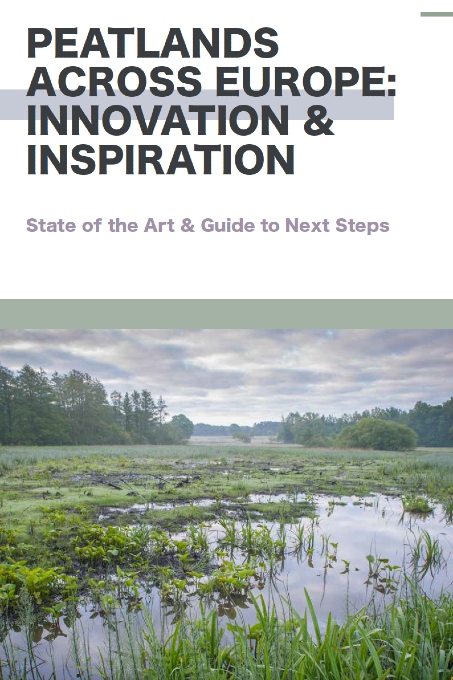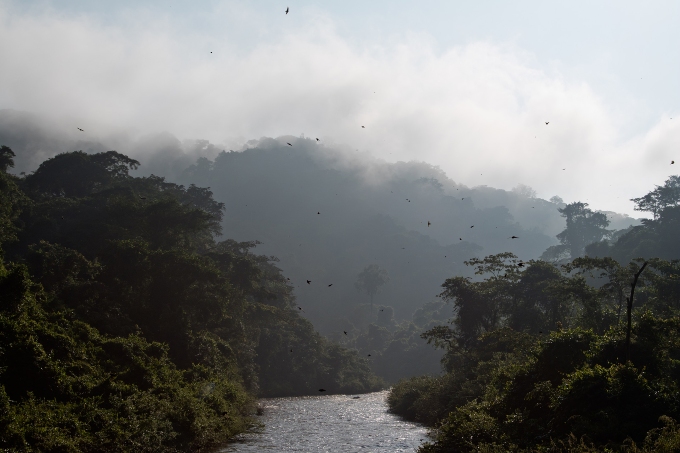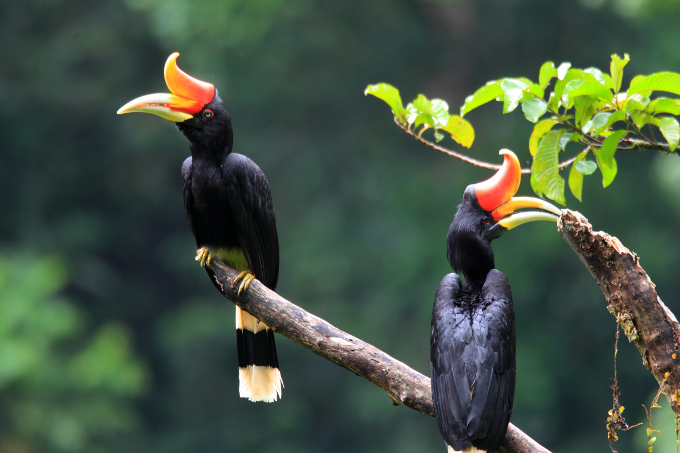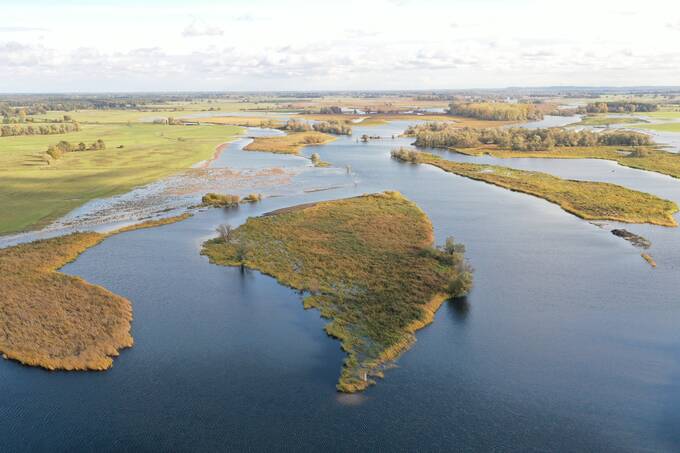Peatlands Across Europe: Innovation & Inspiration - State of the Art & Guide to Next Steps (2.56 MB)
Make peatlands wet again
UN Decade on Ecosystem Restoration begins 5 June with a new peatland conservation guideline issued
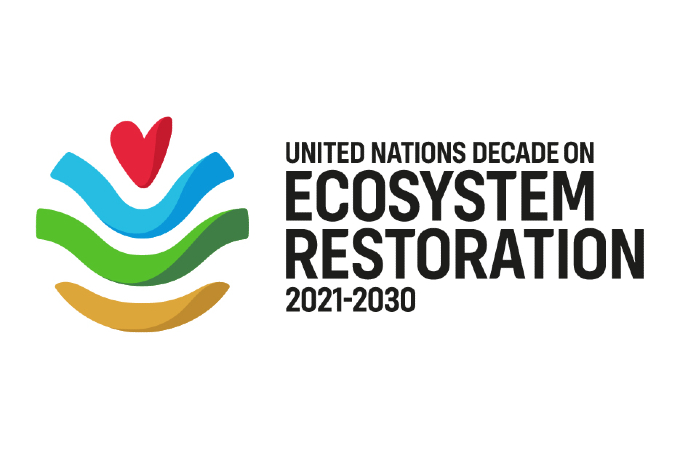
“There has never been a more urgent need to revive damaged ecosystems than now.” - Logo: United Nations
5 June 2021 - Peatlands are biodiversity champions and important for climate change adaptation and mitigation. If left unspoilt, they are the most effective carbon storage powerhouses amongst our planet’s terrestrial ecosystems. Instead, they are in trouble. Across Europe, more than 50% of peatlands have been drained, degraded and developed.
As we enter the UN Decade on Ecosystem Restoration – an initiative co-led by two United Nations' agencies to enhance people's livelihoods, counteract climate change, and stop the collapse of biodiversity – it is crucial to ensure peatlands are protected, restored, and sustainably managed for the future. The UN-themed decade begins 5 June 2021 (World Environment Day) and ends with the year 2030, matching “the timeline scientists have identified as the last chance to prevent catastrophic climate change ”, according to the UN.
The good news is: decades of research have identified techniques, technologies and solutions for a holistic and sustainable future of peatlands. The necessary decisions to mainstream these solutions have been identified. A meaningful impact to save the peatlands is now within our grasp. None of this would be possible without the collaboration of a wide orchestra of actors – communities, experts, institutions, authorities, nations, and international organisations. However, the work has only just begun. We should harness existing knowledge and techniques to build larger, more upscalable demonstration sites proving our cause. Of course, this will always happen in accordance with local conditions and state-of-the-art expertise.
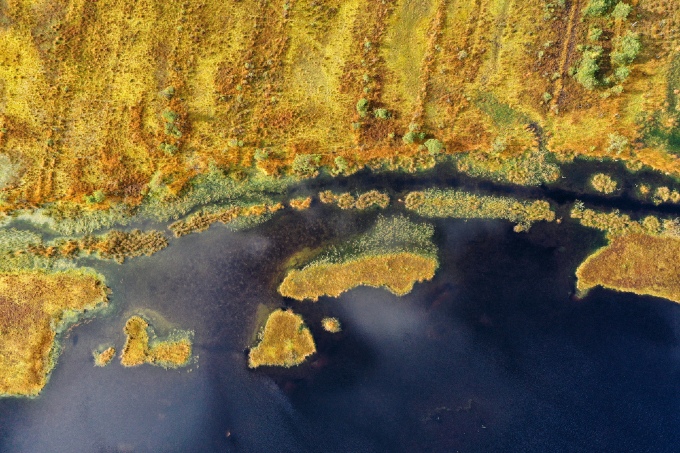
Drone image of a colourful bog landscape in Slowinski National Park, Poland. The line structures indicate ditches dug for draining the bog - photo: Volker Gehrmann
Right on time for the start of this important UN decade, five EU-funded projects across North West Europe, the North Sea region, and the Baltic Sea have published a new manual titled “Peatlands across Europe: Innovation and Inspiration”. The participants have been developing and piloting techniques, technologies and business models to restore and sustainably manage peatlands. This collaborative brief documents their efforts, highlighting key learnings and messages to equip future peatland practitioners and decision-makers with state-of-the-art information. The authors of the guideline are an association of these five peatland conservation projects: LIFE Peat Restore, Carbon Connects, Care-Peat, DESIRE and CANAPE. All of them have been operating under the INTERREG and LIFE funding programs.
Although taking different approaches, all these projects share a commitment to rewetting and restoring peatlands sustainably. Restoration, however, must be accompanied by a funding or business model to ensure the long-term economic viability of healthy peatlands.
There are still some knowledge gaps and funding shortfalls surrounding peatland research – particularly with respect to the role peatlands play in flood mitigation, water quality and filtration, and GHG emissions.
Most importantly, we urgently need more people to know and care about the world's wonderful peatlands and the important role they play for the health of our planet. Providing decision-makers and experts with the knowledge needed to take impactful and insightful actions is the first important pillar in our efforts. However, to restore peatlands as healthy carbon sinks it is also imperative to honor and celebrate the wisdom buried deep underneath them. A fact widely unknown to the public is that the soil beneath the peatlands holds tens of thousands of years of biological information – an archive and treasure trove of natural science history.
Under the official hashtag of the UN decade #GenerationRestoration people are invited to establish citizen science and local initiatives, launch further EU-wide collaboration projects or communication campaigns. The common goal in the next ten years should be to educate about and act on the fact that peatland restoration is an important milestone on the world’s journey to net-zero carbon emissions.
projects on ecosystem restoration
NABU is part of the LIFE Peat Restore project that aims to rewet degraded peatlands covering an area of 5,300 hectares in Germany, Poland, Latvia, Lithuania, and Estonia to restore their function as carbon sinks. more →
Degradation of highland forest landscapes of South Ethiopia is a serious threat to livelihoods and biodiversity. NABU is engaged with the goal of preserving the forests of Bench-Sheko, Kafa & Sheka as carbon sinks and long-term ecosystem service suppliers. more →
Hutan Harapan, the "forest of hope", is a tropical lowland forest in Sumatra, Indonesia, and one of our most precious conservation and restoration programmes. The forest is one of the last refuges for endangered species and provides countless ecosystem services. more →
The Lower Havel is the largest and most important non-coastal wetlands area in Central Europe. The area suffered serious ecological degradation, especially in the 20th century. Now nature is thriving again, thanks to Europe’s largest river restoration project. more →

